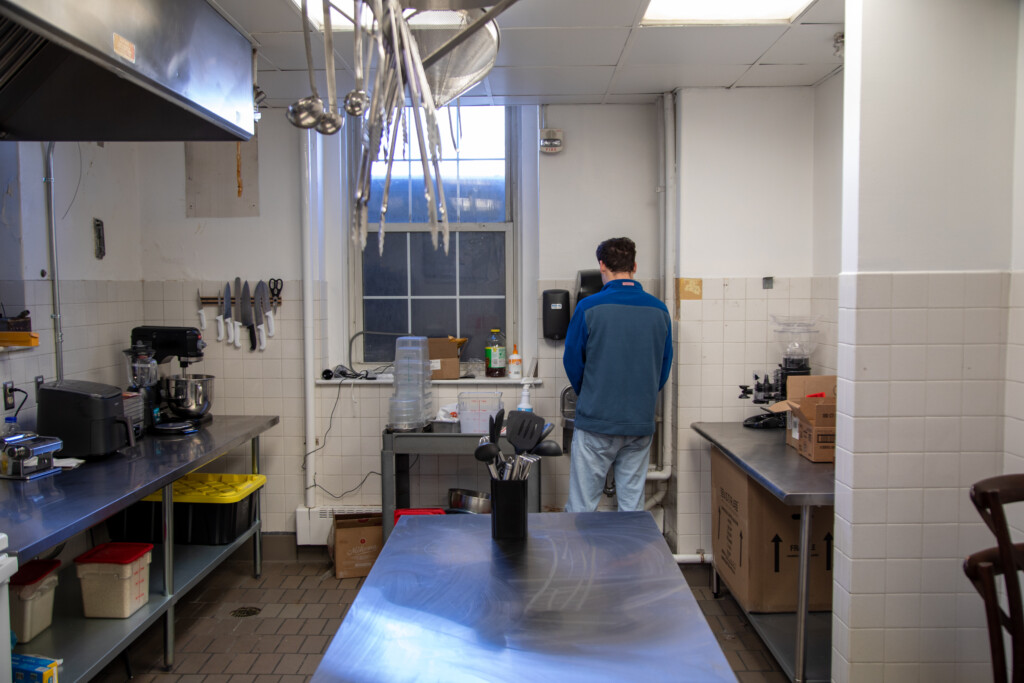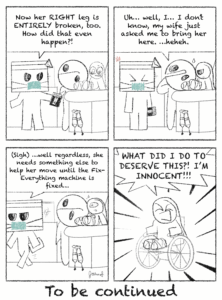You really don’t need my advice—and that’s why I’m going to give it to you.
Throughout our lives, we are taught to depend on others and to learn from their experiences. I remember my overnight here as a prospective student: the students I stayed with—including people I still know today—gave me the “insider scoop” of what went on around campus. When I left campus that weekend knowing I would be coming here the following year, I expected my freshman experience to closely mimic theirs.
In some ways, I’m sure it did.
But in other important ways, they were wrong.
Unlike one of my hosts, I am not a big fan of Danforth Dining Hall. While the food is more interesting there, I tend to find it less consistent in terms of quality. I did not enjoy one of the psychology classes I signed up for after remembering how much one of my hosts enjoyed it.
This year, when I was in the all-powerful position of an experienced sophomore, I had the residents of Gilbert to dispense advice to, and I jumped at the opportunity. I coined what I liked to call RA Scott’s “Tip of the Day,” in which I would take a humorous, random occurrence I had experienced that day, and explain to my residents what piece of life advice they should take away from it.
But, looking back, I tried to push and pull them in the directions that I deemed most fit for them based on my practically omniscient base of knowledge. When one of my residents pledged a fraternity that I wasn’t particularly fond of, I told him so, and explained why I didn’t feel that this group wasn’t the right fit for him. But I was projecting—this fraternity wouldn’t have been the right fit for me.
Yesterday, this resident told me that he really enjoys the group he’s in, and that’s when I realized something.
It doesn’t matter what I think about other people’s choices. As much as I claim to know an individual, who am I to say that I know the person better than he knows himself? The choices and decisions that have worked best for me might end up being the completely wrong ones for any other person.
What if my resident had done what I had advised him to, had dropped out of pledging his fraternity? He would have probably lost out on an experience that, at least right now, has proved incredibly rewarding for him. And that wouldn’t have been fair to him.
While I have personally found it incredibly valuable to overload my schedule with a variety of extracurricular activities and classes, doing so might be the wrong decision for any other person. I would personally get extremely bored without all of my commitments, but I have residents who rarely leave our lounge and seem to be perfectly content with it.
If you’re like me and want to feel involved, great. Go sign up for a bunch of clubs and try to develop your interests through that. If you’re incredibly interested in your history classes and want to spend three hours a day reading up on Civil War literature, good for you.
And that’s fine. I probably would have found it difficult to make good friends or feel truly integrated into the campus without working as an RA, or writing for the Campus Times, or singing with the YellowJackets, but someone else might find that participating in those activities restricts their ability to succeed academically or socially. Psychology has taught me that all individuals are different and will react to stimuli present in their environment in a plethora of ways. So, while I can talk to a prospective student all I want about how much I enjoyed, say, writing for the Campus Times, I have no idea if that information will be of any use to you. You have to find that out for yourself.
So, if you want my advice, here it is: row crew, spend your entire weekend studying to get that 4.0, go to every party on the Frat Quad—actually, um, after looking at my RA contract, I might have to take that one back—and join five different clubs. It might take you a while to figure out what it is exactly that you want, but, when you do, you will find it so much more valuable than anything I can tell you.



